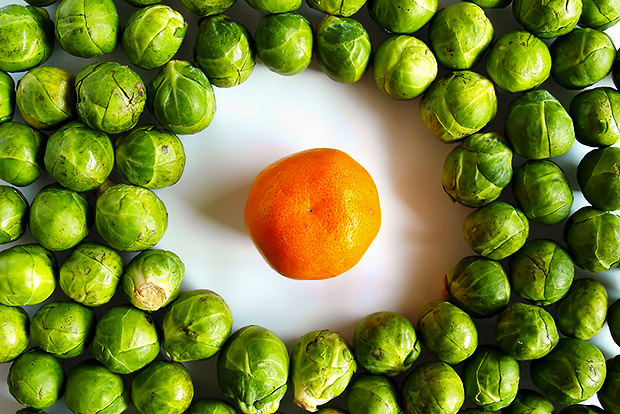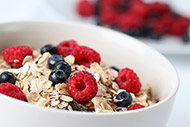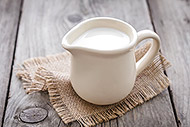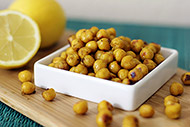
If you think summer is the best time to enjoy fresh fruits and vegetables, you may be surprised at what winter offers. Cool-season produce is packed with phytonutrients that boost health and prevent disease.
Brussels Sprouts
Brussels sprouts contain the highest level of cancer-fighting glucosinolates among the cruciferous vegetables. They are loaded with antioxidants that help fight the inflammation associated with chronic disease. Brussels sprouts also contain soluble fiber, which helps to lower blood cholesterol.
Collard Greens
Collards are the most effective cruciferous vegetable for naturally lowering cholesterol levels. They are also rich in glucosinolates and vitamins A, C, E, and K, which protect against chronic disease.
Dates
Dates can be used as a natural sweetener in baked goods to reduce your intake of refined sugars. They contain soluble and insoluble fiber that reduce blood cholesterol levels and promote a healthy digestive system. Dates are rich in polyphenols (a group of antioxidants) that are linked to a reduced risk for heart disease and cancer. They also contain minerals such as calcium, magnesium, and potassium that work together to improve blood pressure.
Delicata Squash
Delicata is a winter squash loaded with carotenoids that act as antioxidants to prevent disease. It contains five of the B-complex vitamins necessary for health. Research shows that the starches in winter squash may protect against diabetes and help regulate insulin.
Grapefruit
Pink and red grapefruit contain the phytonutrient lycopene, a powerful antioxidant that protects against cancer and other diseases. Grapefruits also contain limonoids, which have been shown to fight the formation of tumors.
Kale
This dark, leafy green contains over 45 flavonoids with antioxidant and anti-inflammatory properties. Kale is loaded with vitamins A, C, and K. It also provides lutein and zeaxanthin, which are important for vision and eye health.
Kiwifruit
Kiwifruit are an excellent source of vitamin C, which is important for tissue growth, especially during wound healing. The edible black seeds provide soluble and insoluble fibers. They are rich in antioxidants and provide the minerals magnesium and potassium that are important for heart health.
Leeks
Leeks are part of the allium family, a group of vegetables with sulfur-containing compounds that promote health and protect against disease. Leeks contain flavonoids and polyphenols that have been found to protect the lining of blood vessels from the free radical damage that can lead to heart disease. Leeks also provide folate for a healthy cardiovascular system.
Oranges
Oranges are rich in vitamin C, which acts as an antioxidant. Animal studies have shown that the flavonoids in oranges have the potential to lower both blood cholesterol and blood pressure. These valuable phytonutrients are found in the peel and inner white portion of the orange and not the juice. Using orange zest and eating whole oranges (where some white pith remains) is the best way to maximize phytonutrient intake. Like grapefruits, oranges also contain liminoids that may help inhibit the formation of tumors.
Pomegranates
Research shows that the polyphenols in pomegranates may improve heart health by preventing plaque build-up in blood vessels by LDL cholesterol. Pomegranates are full of antioxidants and phytochemicals, including ellagic acid which has been shown to slow the growth of tumors in animal studies.
Sweet Potatoes
Sweet potatoes have been found to help regulate blood glucose by increasing levels of protein hormones that support healthy insulin metabolism. Purple sweet potatoes contain anthocyanins (antioxidants that fight inflammation). Orange sweet potatoes are one of the best sources of vitamin A. Research shows that eating orange sweet potatoes with some fat (3 to 5 grams) will maximize your absorption of the vitamin.
Sources



 3 Healthy Lunches for Your Work Week
3 Healthy Lunches for Your Work Week
 5 Tips for Stretching Your Budget for Healthy Food
5 Tips for Stretching Your Budget for Healthy Food
 Best Ways to Reduce Added Sugar
Best Ways to Reduce Added Sugar
 Healthy Tips to Lighten Up Picnic Foods
Healthy Tips to Lighten Up Picnic Foods
 Do You Need to Drink Milk?
Do You Need to Drink Milk?
 Tips to Keep Track of Water Intake
Tips to Keep Track of Water Intake
 Butter vs. Margarine: What’s the Best Choice?
Butter vs. Margarine: What’s the Best Choice?
 7 Good Mood Foods
7 Good Mood Foods

 Pinterest
Pinterest RSS Feed
RSS Feed